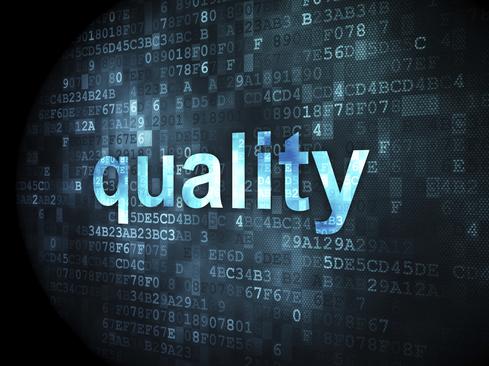Rimini Street, Oracle Spar Over Lawsuit Outcome
Oracle declares it won a significant victory, but Rimini Street sees silver lining in jury's $50 million damage award.


8 Ways To Ensure Data Quality
8 Ways To Ensure Data Quality (Click image for larger view and slideshow.)
Oracle has announced it is seeking a permanent injunction against Rimini Street after a civil trial against the third-party support provider resulted in a $50 million award for Oracle this month.
The injunction would prevent Rimini Street from any further downloads of Oracle software or other copyright infringement. But Rimini Street says it's already discontinued the practice and is free to continue pursuing Oracle maintenance customers.
Oracle announced on the eve of Oracle OpenWorld this week in San Francisco that it would pursue an injunction. Rimini Street is slated to be present at the show, but off-site, talking to potential support customers, as it has done in years past. "Rimini Street does not believe that any injunction relating to any current Rimini Street support process is necessary or warranted," the company said in a statement Oct. 22. It also maintained that Oracle's courtroom victory is less than it appears.
Rimini was found guilty Oct. 13 in the US District Court in Las Vegas of having Oracle customers download PeopleSoft and other Oracle applications and databases so that Rimini Street could perform maintenance on them in its own data centers. Rimini Street began discouraging the practice among customers several years ago when it realized the move left it vulnerable to an Oracle legal challenge.
[Want to see one result of Oracle's early maneuvering in the case? See Rimini Infringed Oracle's Database Copyrights, Say Court.]
In February 2014, Rimini Street announced it was requiring all of its customers to migrate their maintenance and test environments off its servers and back onto their own premises. Nevertheless, Rimini Street had engaged in the practice from the time it was founded in 2005 until July 2014, when the actions announced in the February letter were completed.
"Testimony at trial made clear -- and the jury's verdict confirmed -- that without copyright infringement and illegal conduct, Rimini Street never would have gotten off the ground and grown its business," said Oracle in an Oct. 23 press release announcing its pursuit of a permanent injunction.
Rimini Street cast the district court decision as a victory of sorts for itself, as well. The "jury rejected Oracle's damage claim of $246 million, instead awarded $50 million," the company said in its statement. It also noted that the "jury rejected Oracle's claims for punitive damages."
The firm claimed the jury found Rimini Street's infringement "innocent," which meant Rimini Street had established in court that it was "not aware that its acts constituted infringement of the copyright [and] had no reason to believe that its acts constituted an infringement of the copyright." The description of "innocent" derives from what Rimini Street described as trial judge Larry Hicks's instructions to the jury.
Rimini Street also appeared to take encouragement from the fact that "testimony and evidence provided by Oracle executives and witnesses in the trial confirmed that third-party support is lawful for Oracle licensees to purchase."
Oracle, on the other hand, said neither Rimini Street nor CEO Seth Ravin can escape unscathed. In addition to violating 93 copyrights, Oracle said in its Oct. 23 statement, the firm is liable for $14 million in damages for violating the California Compute Data Access and Fraud Act and the Nevada Computer Crimes law. It added for good measure, "Seth Ravin personally violated both [of those laws] and is individually liable for over $14 million in damages." It wasn't clear whether such damages, if valid, were covered in the jury's award of $50 million to Oracle.
Oracle first brought suit against Rimini Street in January 2010. Oracle won favorable judgments in early legal maneuvering. The case finally came to trial Sept. 14, and finished four weeks later.
In the scheme of things, Rimini Street's $27.8 million in second-quarter 2015 revenue is barely enough to jiggle the Oracle balance sheet, whether added or subtracted. But software maintenance fees accounted for $18.8 billion of Oracle's $29.4 billion in annual software revenue in fiscal 2015, according to its end-of-the-year report June 17. Oracle has told investors the profit margin on maintenance fees is 90%, according to the Wall Street Journal's CIO Report.
Oracle maintenance fees are typically 22% of a customer's annual license price. Rimini Street claims its maintenance fees are about half of Oracle's, but Rimini Street's fees do not entitle customers to Oracle software updates.
To allow a third party to start capturing maintenance revenue, no matter how small a share, was something Oracle was not about to tolerate. Also, in launching the suit in 2010, Oracle was pursuing an old nemesis, Seth Ravin, the former head of TomorrowNow. That firm was a pioneer third-party support firm acquired by SAP in 2007. After the acquisition, Oracle sued SAP on complaints of copyright violation. The suit won a $272 million damage award, which SAP increased to $306 million in a bid to prevent a retrial. SAP also promised to shut down TomorrowNow.
Ravin, meanwhile, left TomorrowNow upon the SAP purchase and founded Rimini Street. With headquarters in Las Vegas and operations in Pleasanton, Calif., the firm currently has 1,180 customers and 600 employees.
About the Author
You May Also Like






